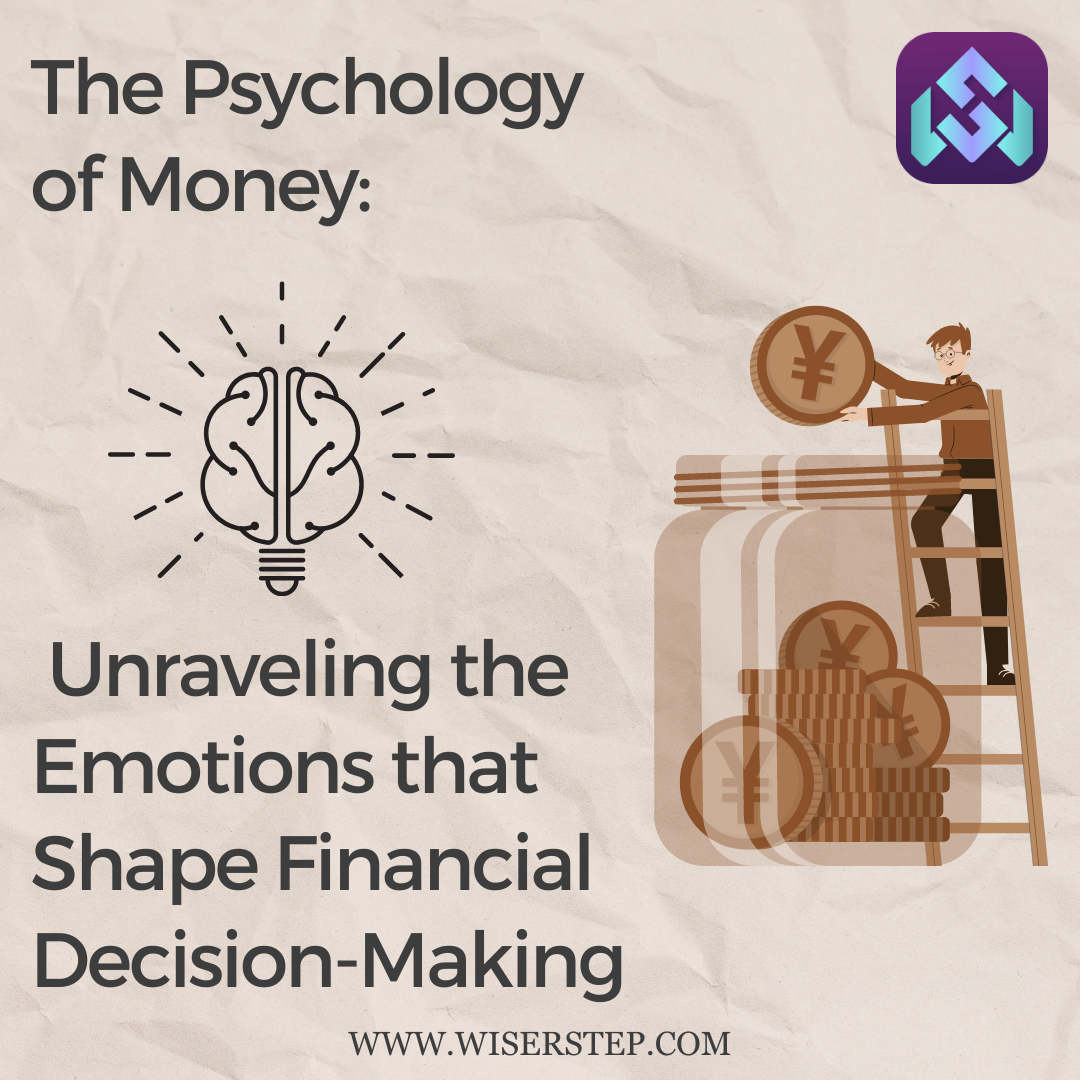Money isn’t just about numbers and transactions; it’s a complex tapestry woven with human emotions, beliefs, and behaviors. The field of behavioral economics has illuminated how our psychological factors play a pivotal role in our financial decision-making. In this blog, we’ll delve into the intriguing realm of the psychology of money and explore how our emotions can significantly impact our financial choices.
1. The Emotion-Economics Connection
While traditional economics assumes rational decision-making, behavioral economics highlights that humans are far from purely rational beings. Emotions and psychological biases often lead us to make financial decisions that might not align with strict logic.
2. Fear and Loss Aversion
One of the most powerful emotions affecting our financial choices is fear. The fear of losing money can lead to a phenomenon known as loss aversion. We tend to feel the pain of loss more intensely than the pleasure of gain, causing us to make decisions aimed at avoiding losses rather than maximizing gains.
3. Herd Mentality and Social Proof
Humans are social creatures, and our financial decisions are often influenced by the actions of others. The herd mentality comes into play when we follow the crowd, assuming that if everyone else is doing something, it must be the right choice. This behavior can lead to irrational financial decisions, especially in volatile markets.
4. Overconfidence Bias
Overconfidence bias leads us to believe that we are better at making decisions than we actually are. This can lead to excessive trading, risky investments, and even ignoring professional financial advice. Recognizing and mitigating overconfidence is essential for making sound financial choices.
5. Instant Gratification vs. Delayed Gratification
The tug-of-war between instant gratification and delayed gratification is a constant battle in financial decision-making. The desire for immediate pleasure often leads to impulse buying, accumulating debt, and not prioritizing long-term financial goals.
6. Anchoring and Framing Effects
Anchoring occurs when we base decisions on the first piece of information we receive, regardless of its relevance. Framing effects refer to how a decision’s presentation influences our choices. Advertisements, sales pitches, and pricing strategies often use these biases to steer our financial decisions.
7. Emotional Spending and Retail Therapy
Emotions like stress, sadness, or boredom can trigger emotional spending as a coping mechanism. Engaging in retail therapy might provide a temporary emotional boost but can lead to regret and financial strain in the long run.
8. Fear of Missing Out (FOMO)
The fear of missing out on opportunities or experiences can lead to impulsive spending and investment decisions. FOMO can be particularly potent in the era of social media, where we’re constantly exposed to others’ seemingly glamorous lives.
9. Status and Identity
Money can also be tied to our sense of identity and social status. The pursuit of luxury items or extravagant experiences might be driven by a desire to project a certain image or gain recognition.
10. Personal Beliefs and Money Mindset
Our personal beliefs about money—whether it’s a source of stress, freedom, security, or happiness—shape our financial behaviors. Cultivating a healthy money mindset is crucial for making balanced and informed financial decisions.
Navigating Emotions for Better Financial Decisions
Recognizing the role of emotions in financial decision-making is the first step toward making more informed choices. Here are a few strategies to navigate the psychology of money-
Self-Awareness: Reflect on your emotions and biases before making financial decisions.
Education: Understand common cognitive biases and behavioral patterns to counteract their effects.
Long-Term Perspective: Focus on your long-term financial goals to counteract impulsive behaviors.
Professional Advice: Consult financial advisors who can provide objective guidance, especially in times of uncertainty.
Mindful Spending: Pause and assess your emotions before making significant purchases.
Emotion-Free Investment: Develop an investment strategy that aligns with your goals, regardless of market fluctuations.
Understanding the psychology of money doesn’t mean eliminating emotions from financial decisions; rather, it’s about harnessing their power to make choices that align with your financial goals and values. By acknowledging and managing your emotional biases, you can become a more mindful and empowered financial decision-maker, leading to greater financial well-being and peace of mind

